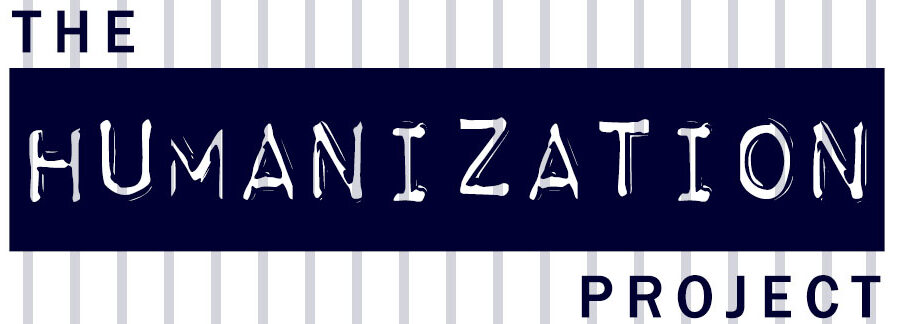
Mark Baker
Hello, everyone. My name is Mark Baker, and I was recently released from a Virginia correctional facility after serving just under two decades. I can’t really tell you about exactly who I am, as I am a glorious new work in progress. I would, however, love to share with you a bit about what I experienced during my incarceration and my journey back into society. Learn more about how finding myself and making true friends brought me a sense of community that got me through and inspired me to build for others. Even tragedy and trauma can bring opportunity.
Mark Baker’s life is right now a celebration of hope and growth as he reestablishes himself at home with family in Sweetwater, TN. He’s updating his computer skills, going fishing with fellow congregants from his family church, and building new bonds with the family members he left and those he never met before. He has overcome abuse and isolation and found community within circumstances of despair, creating a safe space for himself and others, finally.
Mark has recently been featured in Look Again: Stories of Second Chances, a joint project between The Humanization Project and ACLU of Virginia. Learn more about the winding, tumultuous, but ultimately victorious path Mark has taken to his recent reunion with home and family after nearly two decades behind bars.
“We are a community of the forgotten… The unwanted… The misunderstood.”
Written the morning he was finally leaving, Mark Baker explores the surprisingly mixed feelings he encountered. Unexpected kindnesses from the ignorant and curiosity over who will occupy his seat in the chow hall pepper the feast of freedom being served as he prepares to walk out that gate.
“I lay there looking up at the morning sunlight glinting upon the newest addition to my lonely, closed off world, and I became hypnotized by that single strand of glowing web. I could not help but lay there marveling at the beauty of the miniature rainbow traveling ever so slowly down the strand as the sun grew brighter and higher in the sky.”
In “The Cobweb,” Mark Baker encounters memories of his carefree, working class rural upbringing reflecting off the web spun by a nocturnal visitor to his cell. Instead of a menace or pest, he is reminded him of youthful innocence and the less innocent things left unsaid that he later learned. Beauty exists in both.
“As if it would help matters, I pulled my coloring picture out of my pocket and quickly drew a green scraggly stick figure right in the center of it and scrawled “Daddy” above it and handed it to Mom. I thought it would make her happy again if I gave her one of my treasures.”
Without knowing where he was going, Mark was brought to see his father at a big place that seemed like a castle when he as just six years old. Here he recounts the joys, wonders, and tears of that trip where his mother made magic for a young boy as he reflects on her loss during COVID.
“I can tell people my most painful and shameful secrets. I can get them out in the open where I can deal with them with the help of others who have suffered similar circumstances. Finally, it is my choice. I choose not to feel shame and embarrassment.”
Mark’s journey to self-acceptance in his identity required first overcoming the traumas inflicted upon him as a child. In this reflection, he offers a nuanced look at the abuse he processed and how doing so allowed him to finally overcome and now help others.
“Your voice, no matter how isolated, just may be the resounding cry that touches a stranger’s heart and inspires them to share their own story. That in turn might lead to another, and then another, until there is finally an insuppressible outraged roar from within that is too deafening to ignore anymore. That in turn will be the catalyst that affects change.”
The prison system produces profits and provides dog whistles for politicians, dividing people behind bars. But if we all raise our voices, Mark points out, it may just set off a chain reaction that produces change. He implores us all to use our stories to inspire.
“Did you ever not want to go to school after Christmas break because you knew someone would inevitably ask you what you got for Christmas, and you would have to lie and make up a bunch of fantastic gifts because the truth was that your family couldn’t afford any Christmas?”
Cruelty, hypocrisy, and kindness were inextricably, confusingly interwoven throughout Mark’s rural childhood in Tennessee. His father’s own prison experience inspires strength to persevere, but it also left Mark uncertain what he deserved for his mistakes.
“I have gone back there in my mind many times over the years to ask forgiveness for my child self’s undignified and disrespectful behaviour. I’ve always wondered whether my playing ignorantly upon their graves was an affront to them, or did they just lay there watching and reaching up with their spirit fingers trying desperately to touch youth and life once more?”
In the outdoor meanderings of a poor, rural boy, Mark recalls insightful bites of wisdom from his father and unaware insensitivities of a child playing on the graves of the enslaved. In those recollections he finds universal truths about living.
